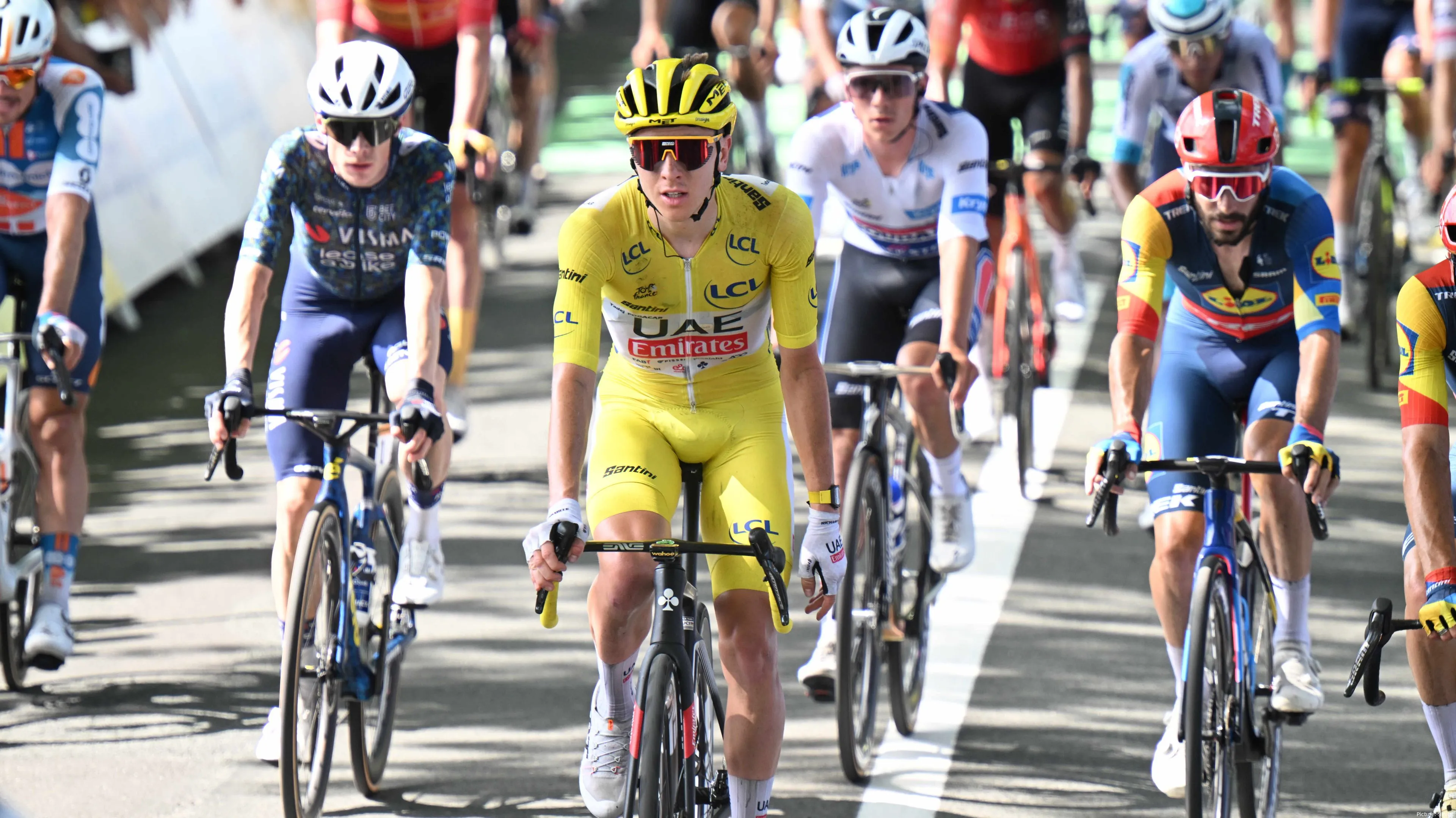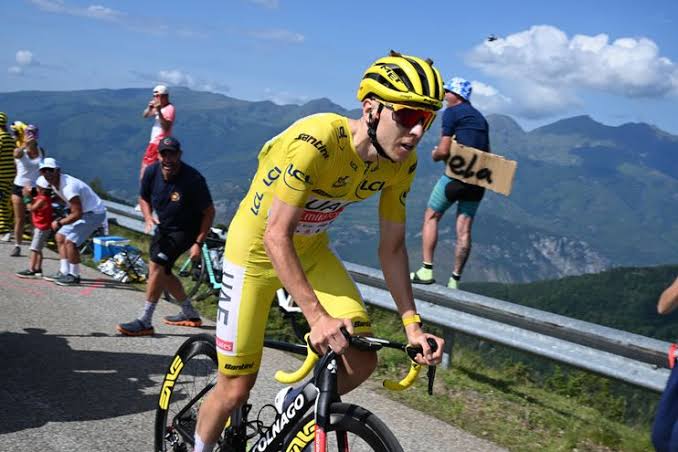The era of complaints has passed—now, it’s up to Pogacar’s rivals to take action and, possibly, outsmart him in a way that could end his dominance in the sport.

In a bold and outspoken criticism, a former Tour de France champion has
taken aim at Tadej Pogacar’s rivals, accusing them of focusing too much on
complaints and not enough on intelligent, strategic racing. The Slovenian
phenom has dominated the cycling world over the past few years, winning two
Tour de France titles and cementing his place among the sport’s greats. Yet,
despite his success, Pogacar has faced considerable criticism from other riders
and experts who claim his supremacy is more about the weaknesses of his
competitors than his own undeniable talent.
The former champion, who wishes to remain anonymous, shared his candid
thoughts in a recent interview, pointing out a pattern among Pogacar’s rivals:
rather than rising to the challenge and adapting their tactics, many riders have
chosen to complain about the dominance of the UAE Team Emirates rider,
instead of finding ways to outsmart him on the road.
The criticism comes at a time when Pogacar’s control over stage races,
particularly the Tour de France, remains largely unchallenged. While his
success has been widely celebrated, it has also led to frustrations from those
seeking to dethrone him, with many citing various factors—from team
dynamics to tactical errors—as reasons for their inability to challenge his
dominance. The anonymous former champion believes this mindset is part of
the reason why Pogacar has continued to reign supreme in the sport.
“What I see is a lot of complaining,” the former Tour de France winner said.
“People talk about his team, his methods, or just his natural talent as if that’s
the reason they can’t win. But when you step onto that starting line, no one is
going to hand you the victory. You have to work for it and, most importantly,
think strategically.” The frustration is clear: rather than focusing on their own
preparation, tactics, and adaptation, Pogacar’s rivals are looking for external
reasons to explain his continued dominance.
Pogacar, who is widely regarded as one of the most complete cyclists of his
generation, has often been praised for his remarkable consistency, versatility,
and mental fortitude. His ability to perform on all types of terrain—from
mountain stages to time trials—has made him nearly unbeatable in stage
races. His tactical acumen, honed by his coach and his team’s strategic
planning, has allowed him to control races in a way that few others can
replicate.
However, despite Pogacar’s brilliance, the former champion believes that the
solution to defeating him lies within the mindset of his competitors. “The
biggest mistake people are making is thinking it’s about finding fault in
Pogacar or his team,” the ex-winner said. “They need to look inward and ask
themselves, ‘What can I do better? How can I race smarter?’ Cycling is about
more than just having the best legs. It’s about intelligence, preparation, and
making the right moves at the right time.”
This critique reflects a broader frustration within cycling: the sport has often
seen dominant champions who are able to exploit the weaknesses of their
rivals, but those challengers need to adapt or innovate if they want to break the
cycle of dominance. In recent years, several top riders, including Jonas
Vingegaard, Primoz Roglic, and Richard Carapaz, have all come close to
dethroning Pogacar but have fallen short for various reasons, including tactical
errors, bad luck, and sometimes even team dynamics.
Pogacar’s main rivals have struggled to consistently challenge him, despite
showing flashes of brilliance in certain races or stages. Vingegaard, who has
been one of the few riders able to match Pogacar in the mountains, fell short in
the 2023 Tour de France, where Pogacar’s superior time-trialing skills and all-
around strength proved decisive. Roglic has also repeatedly struggled to
handle Pogacar’s versatility in the three Grand Tours.
The former champion’s criticism could be seen as a wake-up call for the riders
and teams aiming to dethrone Pogacar. Instead of focusing on external factors,
they need to embrace the challenge and evolve their strategies. “It’s time to
stop blaming external factors and start being more clever,” the ex-winner
concluded. “Pogacar is great, but the race is still won on the road, and there’s
always room for smarter tactics.”
As the cycling world looks to the upcoming seasons, the challenge to Pogacar’s
reign remains wide open. While his rivals may have complaints, it is clear that
only those who adapt and think tactically will have any chance of unseating
him from the top. The time for complaining is over—now, it’s time for
Pogacar’s competitors to act, and perhaps, to outsmart him in a way that could
finally break his stranglehold on the sport.



